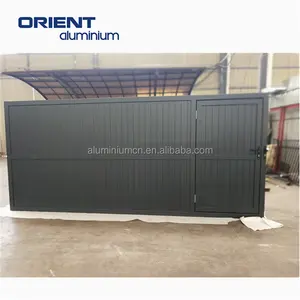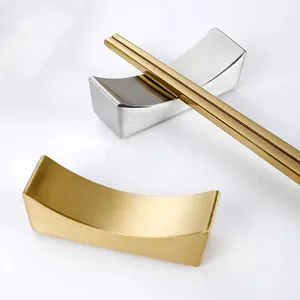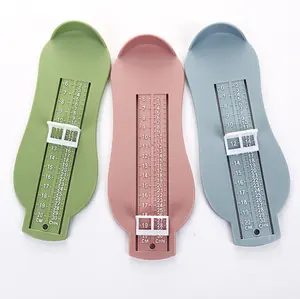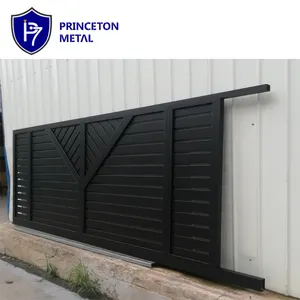Popular in your industry




































































Related Searches:




























































































































































Top categories
About japanese sliding gate
What is Traditional Japanese Sliding Gates
Traditional Japanese sliding gates, often called shoji doors, are a distinctive architectural element that serves both functional and aesthetic purposes. These gates are typically made of wooden frames filled with translucent or opaque panels, which may be made from paper, wooden lattice, or sometimes even glass, and they slide sideways to open and close. They are designed to seamlessly integrate indoor and outdoor spaces, providing privacy, yet still allowing for a degree of visual connection and airflow. The elegant design and craftsmanship of these gates make them popular among homeowners, businesses, and architects who wish to add a touch of Japanese aesthetic to their properties.
The principles behind traditional Japanese sliding gates revolve around simplicity, natural materials, and a deep respect for the surrounding environment. They work on a simple yet ingenious system of tracks and rollers that allow the gate to glide open with minimal effort. This design not only enhances the user experience by being easy to operate but also contributes to the gate's durability by reducing wear and tear compared to swinging mechanisms. Traditional Japanese sliding gates are often used in a variety of settings such as residential homes, commercial properties, and public spaces, where both functionality and form are important.
For businesses that specialize in architectural design or construction, these gates present an opportunity to offer clients a unique and culturally significant feature for their properties. The gates can be customized in various styles and sizes to fit the specific needs of the project at hand. From a small garden entrance to a large property boundary, these sliding gates provide an elegant solution that marries form with function.
Types of Traditional Japanese Sliding Gates
Traditional Japanese sliding gates come in various styles and materials, each suited for different applications:
-
Wooden Sliding Gates: Commonly seen in residential areas and traditional settings, wooden sliding gates offer a classic and natural look. They are often used in gardens or for entrance gates of private properties.
-
Iron Sliding Gates: Known for their durability and strength, iron sliding gates provide a more secure barrier. These are frequently used in commercial settings or on public property.
-
Aluminum Alloy Sliding Gates: Lightweight and resistant to rust, aluminum alloy sliding gates are an excellent choice for both residential and commercial use. They can be designed with intricate details for a more decorative appearance.
-
Stainless Steel Sliding Gates: Offering a sleek look, stainless steel sliding gates are also chosen for their resistance to corrosion. They are often used in modern or high-end settings.
-
Bamboo Sliding Gates: For a natural and eco-friendly option, bamboo sliding gates are used in outdoor spaces. While not as common as other types, they offer a unique aesthetic appeal.
How to choose Traditional Japanese Sliding Gates
Selecting the right traditional Japanese sliding gate for your business involves considering several factors that align with your specific needs and the nature of your property or application. Here's what businesses should contemplate:
-
Material & Durability: The choice of material should be informed by the gate's intended use and the local environmental conditions. Wooden gates offer a classic look and may be more suitable for garden entrances or traditional-style homes, while metal gates provide enhanced security features and are more appropriate for high-traffic areas or commercial settings.
-
Design & Aesthetics: The design style of the gate should complement the building's architecture and landscape design. A minimalist wrought iron gate may suit a contemporary office building, while a classic wooden gate could be perfect for a historic property.
-
Functionality & Ease of Use: Consider how often the gate will be used and by whom. A manual gate might be suitable for a less frequently used entrance or for applications where automation is not desired. In contrast, an automatic gate equipped with an intercom system would be more appropriate for high-security areas or where convenience is paramount.
-
Maintenance & Durability: Look for materials that are easy to maintain and can withstand the rigors of your site's specific conditions. Aluminum alloy is known for its strength and resistance to corrosion, making it a good choice for coastal areas or places with harsh weather.
By considering these aspects alongside the types described earlier, businesses can make an informed decision that ensures both functionality and style are catered to effectively meet their operational requirements.
About Traditional Japanese Sliding Gates on Alibaba.com
Alibaba.com stands out as a global marketplace connecting buyers with suppliers offering an extensive array of Traditional Japanese Sliding Gates. With its vast selection from over 200,000 suppliers worldwide, Alibaba.com serves as a one-stop-shop where businesses can find the perfect solution tailored to their specific needs.
The platform's user-friendly interface allows buyers to filter through numerous options based on features like material type, application setting, design style, and many other criteria. This streamlines the selection process, enabling businesses to home in on products that align with their requirements without hassle.
Moreover, Alibaba.com's commitment to secure transactions is evidenced by services like Trade Assurance, ensuring that payments are protected until delivery is confirmed. With this level of assurance underpinned by comprehensive customer support and convenient mobile buying options, businesses can confidently invest in Traditional Japanese Sliding Gates that offer timeless elegance and functional reliability for their commercial spaces.
Common FAQs for Traditional Japanese Sliding Gates
What are the key features to look for in a Traditional Japanese Sliding Gate?
When selecting a Traditional Japanese Sliding Gate, businesses should consider the design style, operational features like ease of use and security, the material quality, and the specific requirements of the installation environment.
How do I determine the right size for a Traditional Japanese Sliding Gate?
The size of the gate should be chosen based on the available space for installation and the size of the entrance. It is important to measure the area accurately to ensure a proper fit.
Can Traditional Japanese Sliding Gates be customized to fit specific entry dimensions?
Yes, many suppliers offer customizable options for Traditional Japanese Sliding Gates to fit specific entry dimensions. It is recommended to work with suppliers who can provide tailored solutions.
What materials are commonly used in the construction of Traditional Japanese Sliding Gates?
Traditional Japanese Sliding Gates are typically made from robust materials such as aluminum alloy, wrought iron, or steel, which are known for their durability and long-lasting properties.
Are Traditional Japanese Sliding Gates suitable for commercial use?
Yes, Traditional Japanese Sliding Gates are suitable for commercial use. They are often used in commercial properties like hotels, restaurants, and shopping malls due to their aesthetic appeal and ability to provide security.
How do I ensure the security of a Traditional Japanese Sliding Gate?
Opt for a gate with a robust locking mechanism and consider adding additional security features such as anti-lift devices to prevent unauthorized entry.
What maintenance is required for Traditional Japanese Sliding Gates?
To maintain Traditional Japanese Sliding Gates, regular inspections should be conducted to check for wear and tear, and any moving parts should be lubricated as recommended by the manufacturer.
Are there eco-friendly options available for Traditional Japanese Sliding Gates?
Yes, some suppliers offer eco-friendly options for Traditional Japanese Sliding Gates. These may include gates made from sustainable materials or designed with energy-efficient features.
How long does it take to install a Traditional Japanese Sliding Gate?
The time it takes to install a Traditional Japanese Sliding Gate can vary depending on the complexity of the design and the size of the entrance. It is best to consult with the supplier regarding the specific timeframes for installation.
Can Traditional Japanese Sliding Gates be integrated with an access control system?
Many Traditional Japanese Sliding Gates can be integrated with various access control systems to enhance security. It is advisable to discuss compatibility with such systems with the supplier.
Do Traditional Japanese Sliding Gates require regular maintenance?
Like any mechanical system, regular maintenance is necessary to ensure the longevity and proper functioning of Traditional Japanese Sliding Gates. This may include lubrication, checking for loose hardware, and ensuring that moving parts are clean and properly aligned.

































